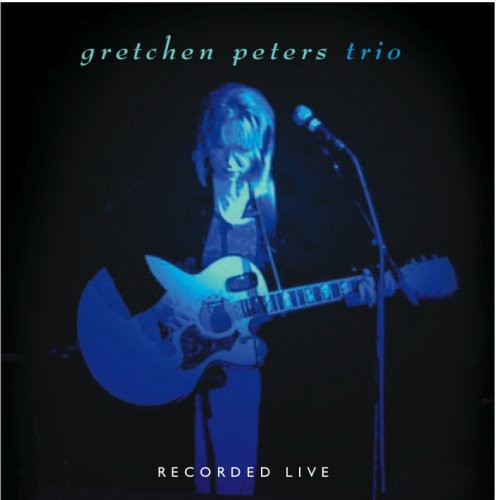Scarlet Letter
Gretchen Peters - Trio
Gretchen Peters - Trio
Out of stock
Couldn't load pickup availability
SKU:SCLE7834.2
Share
Gretchen Peters' musical career has grown like a Virginia creeper: new leaves spreading in one direction first, then another, then another still. The result is lush and impressive, though it didn't get that way all at once. Peters has the sort of creative impulse that inevitably finds the fertile spots, which is a wonderful thing from the standpoints of quality and longevity, even if it can be a little unpredictable. Circus Girl: The Best of Gretchen Peters is a welcome chance, then, to retrace how her songs have grown-and keep growing-from their roots in her singular storytelling gifts. In other words, it's a chance to take in the full effect thus far. Says Peters of the collection's 15 carefully selected songs, "What I was amazed by was that there was a continuity to them, that they hung together, all of them, from these disparate times." Indeed, they do. Peters arrived in Nashville in the late '80s, a singing, songwriting product of New York, Boulder, Colorado and politically active parents. Perplexed by the artificial division of labor in the commercial country music industry, she concluded it would be best to seek a publishing deal first. "I didn't understand the whole delineation between singer and songwriter," she explains. "Everybody that I knew was a singer-songwriter, did it all. I couldn't really conceive of myself in any other light." And so began a season of striking commercial success. Peters got a publishing deal, and her closely observed story-songs hit a sweet spot with some of mainstream country's finest voices of the '90s; "On a Bus to St. Cloud" with Trisha Yearwood, "You Don't Even Know Who I Am" with Patty Loveless, "Chill of an Early Fall" with George Strait, "Let That Pony Run" with Pam Tillis and-most famously-"Independence Day" with Martina McBride. Culturally and critically the impact of "Independence Day"-an arresting song about an abused woman fighting back-still reverberates. It earned Peters a GRAMMY nomination and CMA Song of the Year honors. "It just seemed like getting the first olive out of the jar, they just started coming," Peters says of her string of cuts. "And it was great, but it wasn't really my master plan or anything. I was just as surprised as anybody." A turning point came in the mid-'90s, when Peters got a record deal and the chance to record her own songs exactly as she felt they ought to be done. In 1996 (The Secret of Life) and every few years after (Gretchen Peters in 2001 and Halcyon in 2004) she offered a set of sophisticated folk-pop songs, sung in a fetching soprano that's as sultry as it is girlish, and rendered with the sensitivity and patience to tease out the nuance in every corner of a story. If commercial country audiences didn't quite know how to categorize Peters' music, U.K. audiences fell in love immediately. Her shows have sold out there ever since. "From the first time I went over there to play, the audiences were so great," she recalls. "They just didn't hold those rigid ideas of what you were supposed to be, and to me that felt like blessed relief. It was almost as though my limitations were my blessings over there."



